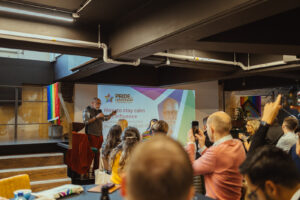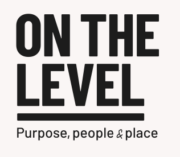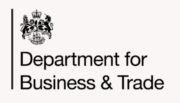How to stay calm and influence (even when you’re angry) with Professor Stephen Whittle OBE
As part of our Inaugural Annual Conference, Stephen Whittle spoke to us about influencing (even when you're angry).
How to stay calm and influence, even when you’re angry: Insights from Professor Stephen Whittle
At the Pride in Leadership Annual Conference 2024, sponsored by Crowe, Professor Stephen Whittle, OBE, an important figure in transgender activism and equalities law, delivered a compelling talk that resonated with an audience seeking guidance on navigating advocacy, leadership, and identity in challenging times. Here’s a summary of his key insights and memorable moments.
Finding a voice and becoming respectable
Stephen opened by reflecting on his early years, describing himself as “the dog shit that people wiped off their shoes” due to societal prejudices. Transitioning in 1975, he recounted how finding respectability and a voice within society were revolutionary achievements. “To be listened to, you have to be seen as some sort of equal with other people,” he noted, emphasising self-acceptance as the first step toward societal change.
His journey as a co-founder of Press for Change, the UK’s pioneering trans rights group, was a testament to this philosophy. He highlighted their mission: seeking respect and equality for all trans people. Through humour, he shared an early challenge: fighting for the right for his partner to use a fertility clinic. “Dear Miss Rutherford, we will never consider you a good enough woman to become a potential mother whilst you still live with him,” was the rejection they faced- something that spurred his activism.
Choosing battles: beyond bathrooms
Stephen tackled the charged issue of bathroom access with characteristic pragmatism, quoting Sarah McBride, the first openly trans U.S. state senator: “I’m not here to fight about bathrooms. I will follow the rules as outlined… even if I disagree with them.” He contextualised these debates within broader political landscapes, describing the rhetoric of anti-trans bills as divisive distractions from real issues.
senator: “I’m not here to fight about bathrooms. I will follow the rules as outlined… even if I disagree with them.” He contextualised these debates within broader political landscapes, describing the rhetoric of anti-trans bills as divisive distractions from real issues.
Quoting Alexandria Ocasio-Cortez, he dismantled claims about safety concerns, highlighting how such policies target not only trans people but also cisgender women who don’t conform to conventional norms: “This inevitably results in women and girls who are primed for assault… because people are going to want to check their private parts in suspecting who is trans and who is cis.”
Listening: The cornerstone of advocacy
Stephen’s reflections on active listening were some of the most poignant moments of his talk. He shared how a year of intentional silence during his youth taught him invaluable lessons about engaging with others. “To seek improvement for all, we must stop having sides,” he urged, calling for leaders to prioritise understanding over confrontation.
He attributed much of Press for Change’s success to their foundational rule: “We work by making friends, not by making enemies.” By engaging with critics, even those with seemingly irreconcilable differences, Stephen demonstrated how empathy and dialogue can lead to unexpected alliances.
He emphasised several key principles of active listening:
- Giving full attention to others rather than planning responses
- Asking genuine, open questions
- Seeking clarification when needed
- Deferring judgment
- Allowing time for people to think and respond
- Taking notes during negotiations
Learning from challenges and humour
 A story about navigating bureaucratic restrictions on bathroom access showcased Stephen’s wit. In 1999, the Department for Work and Pensions proposed allowing trans employees to use gendered bathrooms only if deemed “reasonable enough” by management. “How many of us would get through that test?” he joked, underscoring the absurdity of such measures.
A story about navigating bureaucratic restrictions on bathroom access showcased Stephen’s wit. In 1999, the Department for Work and Pensions proposed allowing trans employees to use gendered bathrooms only if deemed “reasonable enough” by management. “How many of us would get through that test?” he joked, underscoring the absurdity of such measures.
Making systems work through understanding
Professor Whittle illustrated the practical application of these principles through his experience as a law school scheduler. By taking time to understand staff members’ personal circumstances and constraints, he created a more effective and humane scheduling system than the computer-based one that eventually replaced it.
Press for Change: A model of inclusive activism
Drawing from his experience with Press for Change, the influential trans rights organization he co-founded in 1992, Whittle emphasized their core principle: “We work by making friends, not by making enemies.” The organisation’s success came from:
- Listening to the entire trans community
- Understanding the diverse pathways people take in their transitions
- Never leaving anyone behind
- Finding common ground with potential allies
- Working through compromise when necessary
Navigating opposition constructively
In addressing current challenges from anti-trans organisations, Whittle outlined a practical framework for engagement:
Debatable topics:
- Evidence-based discussions about safety and access
- Practical implementation of rights
- Freedom of speech concerns
Non-negotiable areas:
- Basic human dignity
- The reality of legal gender recognition
- The legitimacy of trans healthcare
On hate and opposition, he was resolute: “There are 27 organisations in this country alone that are anti-trans. I will debate the facts, but when it comes to hate—when someone calls trans people ‘kiddie groomers’—that’s a red line.”
The power of finding common ground
Whittle shared a powerful success story from Hong Kong, where he transformed an opponent of marriage equality into a supporter by finding common ground on family values. This illustrated how building bridges through shared values can lead to meaningful change.
A call to action
Stephen’s parting message was a rallying cry for resilience and optimism in leadership: “Know your limits. Fight when it matters. Find joy in the absurdities, and never lose sight of the humanity in others—even your detractors.” His lifetime commitment to equality, dignity, and humour stood as an inspiration for leaders at every stage of their journeys.
In a world often marred by division, Professor Whittle reminded the Pride in Leadership audience of the transformative power of listening, understanding, and courage – a message that continues to resonate far beyond the walls of the conference hall.














